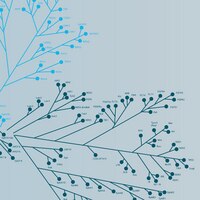14-646 Sigma-AldrichTCPTP Protein, 10 µg
Un-tagged, recombinant, human TCPTP, amino acids 1-341. For use in Phosphatase Assays.
More>> Un-tagged, recombinant, human TCPTP, amino acids 1-341. For use in Phosphatase Assays. Less<<Recommended Products
Overview
| Replacement Information |
|---|
| Description | |
|---|---|
| Catalogue Number | 14-646 |
| Brand Family | Upstate |
| Trade Name |
|
| Description | TCPTP Protein, 10 µg |
| Overview | Un-tagged, recombinant, human TCPTP, amino acids 1-341. |
| References |
|---|
| Product Information | |
|---|---|
| Quality Level | MQ100 |
| Applications | |
|---|---|
| Application | Un-tagged, recombinant, human TCPTP, amino acids 1-341. For use in Phosphatase Assays. |
| Key Applications |
|
| Physicochemical Information |
|---|
| Dimensions |
|---|
| Materials Information |
|---|
| Toxicological Information |
|---|
| Safety Information according to GHS |
|---|
| Safety Information |
|---|
| Storage and Shipping Information | |
|---|---|
| Storage Conditions | 6 months at -70°C |
| Packaging Information | |
|---|---|
| Material Size | 10 µg |
| Transport Information |
|---|
| Supplemental Information |
|---|
| Specifications |
|---|
| Global Trade Item Number | |
|---|---|
| Catalogue Number | GTIN |
| 14-646 | 04053252401701 |
Documentation
TCPTP Protein, 10 µg SDS
| Title |
|---|
TCPTP Protein, 10 µg Certificates of Analysis
| Title | Lot Number |
|---|---|
| TCPTP, active - 2067980-A | 2067980-A |
| TCPTP, active - 28206U-B | 28206U-B |








